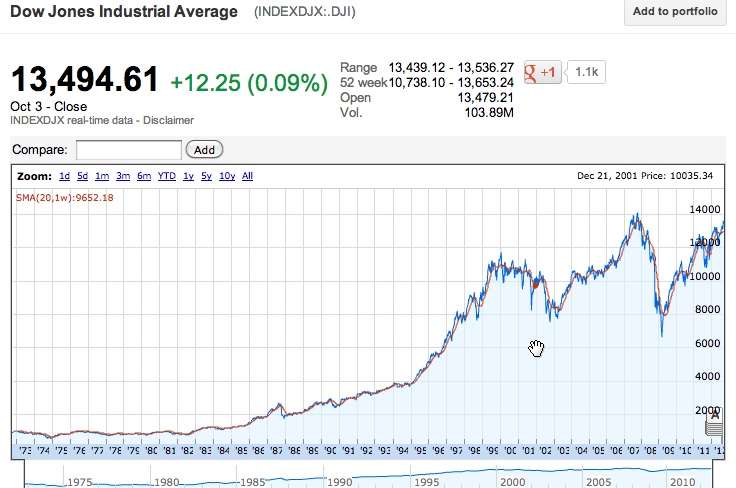Why America’s Economic Growth May Be (Shh!) Over (Ep. 95)
[omny:https://traffic.omny.fm/d/clips/aaea4e69-af51-495e-afc9-a9760146922b/14a43378-edb2-49be-8511-ab0d000a7030/b499298e-41eb-4a10-bd76-ab0d001af6a7/audio.mp3]

With the Presidential debate finished, we are officially in the final lap of America’s second-favorite spectator sport. (Yes, football is better than politics.) Of all the talking that Barack Obama and Mitt Romney will do by Nov. 6, you can bet that a great deal of their breath will be expended on economic matters. Because that’s what the President of the United States does, right — runs our economy?
Well, actually, no. The President has far less influence over the economy than people tend to think — as we’ve pointed out not once, or twice, but three times.
That, of course, won’t stop the candidates from talking about their plans to “fix” or “heal” or “restore” our economy — all of which imply that we are in an economic doldrums that is sure to pass. But what if it doesn’t? What if the massive economic growth the U.S. has experienced through most of our history is a thing of the past?
That’s the topic of our latest Freakonomics Radio on Marketplace podcast. (You can download/subscribe at iTunes, get the RSS feed, listen via the media player above in the post, or read the transcript here.)
It is largely based on a recent paper by the Northwestern economist Robert J. Gordon, called “Is U.S. Economic Growth Over? Faltering Innovation Confronts the Six Headwinds” (abstract, PDF). It is an impressive and interesting piece of economic history; among the writers who have taken note of it are David Warsh and Tim Harford.
Gordon argues that we have essentially experienced three different Industrial Revolutions over the past couple centuries. The first (1750-1830) gave us steam power and railroads. The second (1870-1900) gave us electricity and all that went along with it; the internal combustion engine (and all that went along with it), running water and indoor toilets, communications, and much more. And the third, the digital revolution, has of course brought us computers, mobile phones, and the like.
Gordon’s central argument is that, as impressive as this third revolution has been, in terms of productivity and other concrete economic gains, it cannot hold a candle to the electric revolution:
GORDON: If you think about the great inventions of the last ten years, you think of iPods, you think of the iPad, iPhones, but each of those is an incremental improvement on what we already had. We had portable music in the form of CD players, that’s been replaced by the iPod. You can carry a lot more music in your pocket on an iPod than you could on a CD player, but it’s the same music. So that’s an incremental, small-scale improvement. We had garden-variety cell phones before that. We had pay phones that you had to walk up to and put a quarter in. And now smart phones combine computer power with the ability to make a telephone call. But we’re taking things that had already been invented and we’re just repackaging them in a more convenient form. So that’s the sense that these are not fundamental inventions on the scale of things like electricity or inventing the motor vehicle.
You’ll also hear from recurring guest Tyler Cowen, whose recent book The Great Stagnation echoes much of Gordon’s argument. But Cowen is more optimistic than Gordon that the U.S. can recapture its economic momentum, as the subtitle of his book spells out: “How American Ate All the Low-Hanging Fruit of Modern History, Got Sick, and Will (Eventually) Feel Better Again.”

Comments